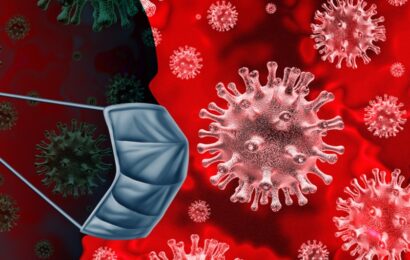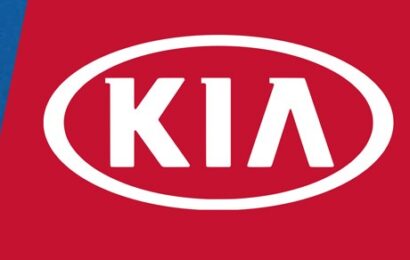

The National Agency for Food and Drug Administration and Control
(NAFDAC) has granted approval to Serum Institute Pvt. Ltd. (SIIPL) R21 malaria vaccine for the treatment of malaria in Nigeria.
The Director-General, Prof. Mojisola Adeyeye, said this at a news conference on Monday in Abuja.
She said that the granting of registration/approval was in line with the agency’s mandate as stipulated
by its enabling law — NAFDAC Act CapN1, Law of the Federation of Nigeria (LFN) 2004.
Adeyeye said that it became necessary to grant approval for the vaccine following the 2021 World Malaria
Report that Nigeria had the highest number of global malaria cases of 27 per cent.
She said the highest number of deaths stood at 32 per cent of global malaria deaths in 2020, adding that Nigeria accounted for an estimated 55.2 per cent of malaria cases in West Africa in 2020.

“Malaria is one of the most important public health concerns in the world, the latest World Health Organisation (WHO)
Malaria Report shows there were 247 million cases of malaria in 2021 compared to 245 million cases in 2020.’’
She explained that the estimated number of malaria deaths stood at 619000 in 2021 compared to 625000 in 2020.
“Over the two peak years of the pandemic (2020–2021), COVID-related disruptions led to about 13 million more malaria
cases and 63000 more malaria deaths.
“The WHO African Region continues to carry a disproportionately high share of the global malaria burden. In 2021 the
region was home to about 95 per cent of all malaria cases and 96 per cent of deaths.
“Children under five years of age accounted for about 80 per cent of all malaria deaths in the region. Four African countries
accounted for just over half of all malaria deaths worldwide, with Nigeria; 31.3 per cent, the Democratic Republic of the Congo;
12.6 per cent, United Republic of Tanzania; 4.1 per cent and Niger; 3.9 per cent respectively.
“Malaria is transmitted throughout Nigeria, with 97 per cent of the population at risk. The duration of the transmission
season ranges from year-round transmission in the south to three months or less in the north,’’ she stressed.
She said that the Marketing Authorisation Holder’s (MAHs) for the vaccine is Fidson Healthcare Ltd,
which had the agency’s Drug and Related Products Registration Regulation 2021.
According to Adeyeye, the R21 malaria vaccine is an adjuvanted protein vaccine presented as a sterile solution.
She explained that “a dose, which is 0.5ml, is composed of R21 Malaria antigen 5µg and Matrix-M1 50µg as an
adjuvant filled in a vial as ready-to-use liquid formulation for intramuscular injection.’’
She said that the vaccine is indicated for the prevention of clinical malaria in children from five months to 36 months
of age, adding that the storage temperature of the vaccine is 2-8 °C.
The NAFDAC boss said the agency had several pathways for the registration of vaccines, in line with the agency’s guideline
for registration of Imported Drugs, Vaccines and IVDs under a Collaborative Registration Procedure.
Adeyeye said the agency received the dossier of the R21 Malaria manufactured by SIIPL and subjected it
to independent review at two different levels.
She added that as a matured regulatory agency, it is expected as part of global benchmarking that external advisory
the committee was put in place to give advise upon invitation on certain functions of the agency.
She said that as a new biological molecule being given consideration for full registration, the independent review
by an external body became imperative to further safeguard public health.
The external advisory body known as NAFDAC’s Vaccine Advisory Committee (NEVAC) is made up of four highly
recognised, well-published experts from Nigeria’s tertiary institutions, she said.
She listed the institutions where the advisory body members were selected as Nnamdi Azikwe University, Awka,
Anambra State; University of Lagos, Lagos State, University of Ibadan, Oyo State and Usman Dan Fodio University, Sokoto, Sokoto State.
Adeyeye said that the agency also had an in-house Vaccine Review Committee (NEVAC) extracted from different directorates of NAFDAC
to oversee, evaluate, as well as carry out clinical trials on vaccine before approval was made.
She said that the dossier was reviewed using WHO standards across relevant domains, in addition to the European Medicines
Agency guidelines (where appropriate), and scientific rigor on the vaccine.
According to her, the review of NAFDAC’s committee has always been guided by the same international standards and best
practices with the same modality of an independent review by members.
“This is followed by long hours of plenary where rigorous assessment of each review took place.’’
She said that the committee also independently scored the assessment as satisfactory, which was then
forwarded to the director-general and that upon submission of the reviews of both committees, the NAFDAC boss
called for a joint review session on April 14.
Adeyeye said that the joint review process provided the opportunity to harmonise the assessments, the outcomes
of the reviews were discussed, and the recommendations and queries/clarifications were consolidated to be referred to the
manufacturers.
She said that the R21 Malaria Vaccine dossier complied substantially with best international standards with which
the dossier was benched-marked.
She added that the Joint Review Committee concluded that the data on the R21 malaria vaccine were robust
and met criteria for efficacy, safety and quality. nan.




